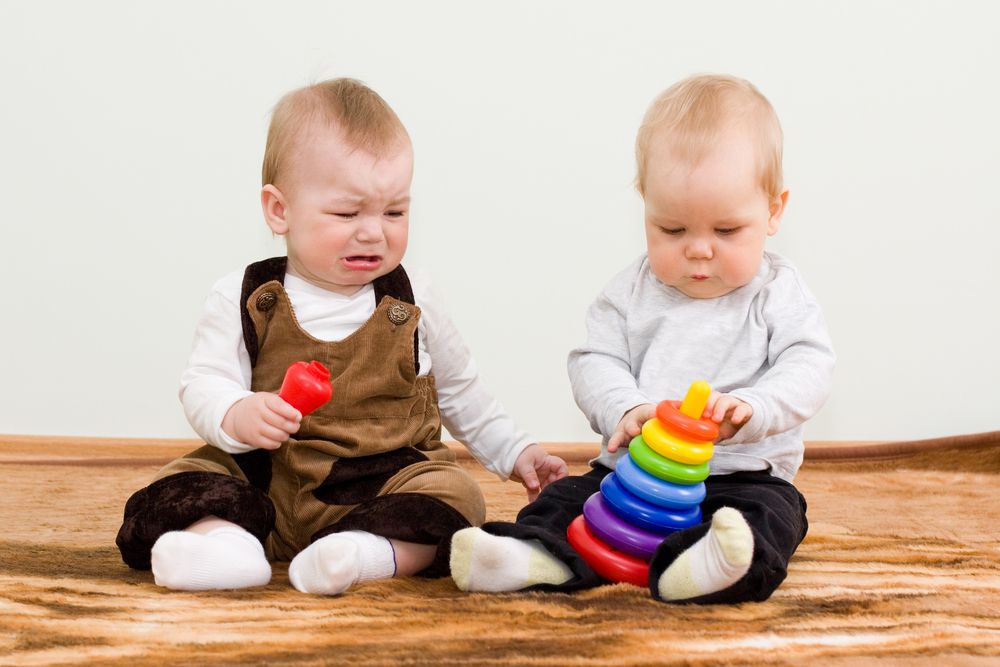
Tots as young as 3 believe it's important to share. But when sparkly stickers enter the picture, the young ones get greedy, new research finds.
The results, published today (March 20) in the journal PLOS ONE, suggest that children already understand and agree with fairness principles by age 3, but don't actually live by those precepts until older ages. The study also suggests a lack of impulse control or a failure of willpower can't explain the trend, as might be expected.
"These little kids are really clear: Yeah, you should split things equally when everyone is equally deserving. But when given a chance to do that, they tend to hoard things," said study co-author Craig Smith, a developmental psychologist at the University of Michigan at Ann Arbor.
Stickers!
Several studies in the past have shown that toddlers are bad at sharing. In a classic experiment called the dictator game, 3-year-olds typically dole out less than half of their stickers to another child, often giving none. Separately, studies have suggested that even babies have a sense of fairness.
To see how those differing beliefs and actions interact, Smith and his colleagues gave 3-to-8-year-old children four stickers each and told the kids they could share any number with another child of the same gender. The youngest children were more selfish, while older kids allocated stickers more fairly. [5 Ways to Foster Self-Compassion in Your Child]
Beforehand, the researchers also asked the children questions about what people should do in similar situations, and both age groups of children agreed that people should split the stickers evenly.
Sign up for the Live Science daily newsletter now
Get the world’s most fascinating discoveries delivered straight to your inbox.
That led the researchers to wonder why younger children's ideals diverged so dramatically from their actual behaviors.
Can't help themselves?
Under one possible explanation, children planned to share, but lost their willpower as soon as they got their hands on the sparkly prizes.
But when researchers asked children to predict how they would share stickers, they accurately forecasted their behavior.
"They have this bizarre sense of self-awareness, like, 'I know I'm going to hoard this,'" Smith told LiveScience.
That suggests the children's selfishness (at least in this task) did not come from a lack of impulse control.
Researchers also tested the idea that children expected other kids to hoard stickers, so they might as well, too. But most children expected other kids to share fairly, ruling out cynicism as the explanation for the observed selfishness.
Children also knew that rules of fairness applied to themselves as well as others.
After hoarding stickers, younger children felt quite happy with their selfishness, whereas older children felt more ambivalent after doing the same.
Unanswered question
The findings are impressive, because they tie together children's beliefs and actions, said Felix Warneken, a developmental psychologist at Harvard University, who was not involved in the study.
"What's striking is that there's this hypocrisy between what should be done and what they actually do," Warneken told LiveScience.
It's still not clear exactly why little children's beliefs and actions differ so dramatically, but it may be part of the developmental process, Warneken said.
Still, that doesn't mean youngsters' selfishness is unchangeable. In collective cultures, in which sharing is a necessity in life, children tend to act fairly in sharing tasks at an earlier age, Smith said.
Follow Tia Ghose on Twitter @tiaghose. Follow LiveScience @livescience, Facebook & Google+. Original article on LiveScience.com

Tia is the managing editor and was previously a senior writer for Live Science. Her work has appeared in Scientific American, Wired.com and other outlets. She holds a master's degree in bioengineering from the University of Washington, a graduate certificate in science writing from UC Santa Cruz and a bachelor's degree in mechanical engineering from the University of Texas at Austin. Tia was part of a team at the Milwaukee Journal Sentinel that published the Empty Cradles series on preterm births, which won multiple awards, including the 2012 Casey Medal for Meritorious Journalism.











